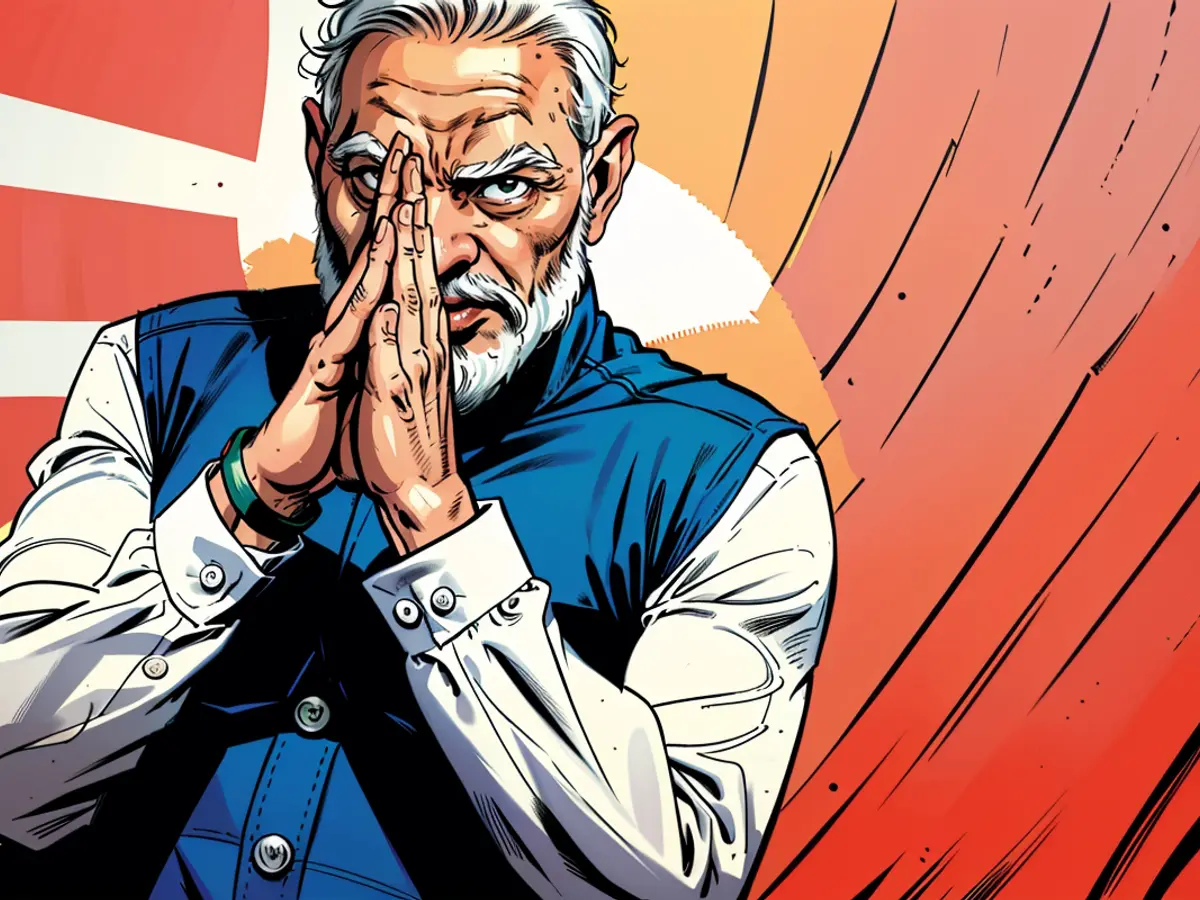Indian PM Modi commences dialogue for coalition formation following setbacks in parliamentary polls.
In a surprising turn of events, the parliamentary elections in India resulted in the BJP losing its absolute majority for the first time in a decade. The casual observer would have anticipated a landslide victory for the prime minister, known for his Hindu nationalist politics. Nevertheless, experts predicted that governing would be much more challenging for Modi in his third term.
Novelist Nilanajahn Mukhopadhyay, author of a biography on the prime minister, opined that Modi would be forced to listen to others. She added, "We'll see more democracy and a healthier parliament. He'll have to be a completely different leader than he has been so far."
The largest democratic election in the world took place in India, with over 968 million citizens being called to vote. Modi's BJP won 240 parliamentary seats, a reduction of 32 seats compared to their absolute majority in the previous elections. In the 2019 election, the party achieved 303 seats.
The major opposition party, the Congress Party, nearly doubled their results and secured 99 seats.
With over ten years in power, Modi is now facing a new challenge: finding allies for a majority. Even in his constituency, the holy city of Varanasi for Hindus, his supporters were unable to secure a consolation prize. He received 152,300 votes there, compared to almost 500,000 in 2019. Despite this, Modi declared "big decisions" for his upcoming term in front of his supporters on Tuesday night. "The country will write a new chapter of development."
Modi will now have to negotiate with more influential coalition partners and a strengthened opposition that could potentially hinder his plans, according to Indian media outlets. "This could become a long-term issue for the BJP," wrote "Times of India."
Most of the blame for the party's poorer performance is being attributed to unemployment. Modi's tenure was characterized by an economic miracle as India became the fastest growing large economy in the world, making it the fifth-largest economic power. The IT sector, which employs over five million people, saw a significant influx of qualified jobs, contributing to the growth of the middle class.
However, the IT sector has been affected by economic crises abroad, leading to a decline in the number of newly created jobs. The International Labor Organization reported that 29% of university graduates in India were unemployed in 2022.
Economist Santosh Mehrotra remarked, "India is facing a job crisis. The country needs to create ten to twelve million jobs outside of agriculture. But we're not currently achieving those numbers."
Read also:
- Despite losing its absolute majority in the parliamentary election, the Bharatiya Janata Party (BJP) is expected to engage in coalition talks with other parties, led by Prime Minister Narendra Modi.
- In India's largest democratic election, where over 968 million citizens voted, the BJP, under Premier Modi, secured 240 parliamentary seats – a decrease of 32 seats compared to their absolute majority in the previous elections.
- The BJP's losses in the parliamentary election have put pressure on Modi to form a coalition, potentially making governance more complex in his third term as India's Prime Minister.
- The opposition Congress Party nearly doubled their results, securing 99 seats, providing a significant challenge to the BJP's plans for the upcoming parliamentary session.
- Indian democracy has shown its resilience, with the Bharatiya Janata Party's coalition talks and the strengthening of the opposition, demonstrating the country's commitment to democratic processes, even in the face of electoral losses.







